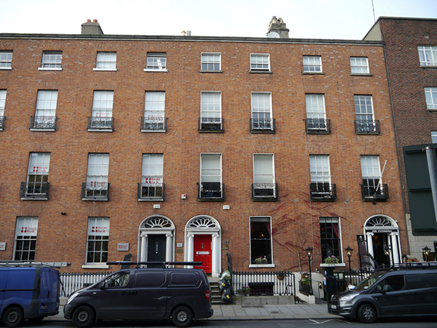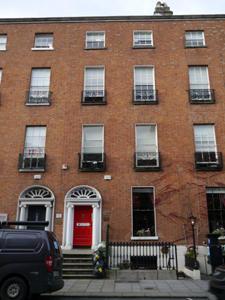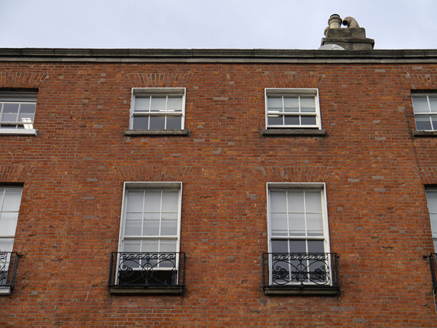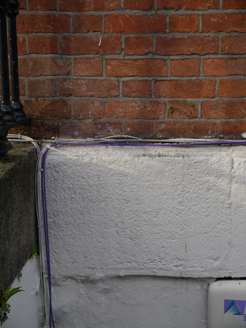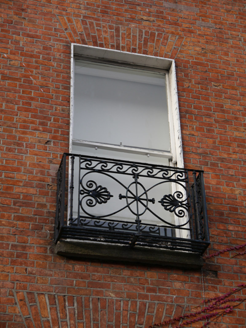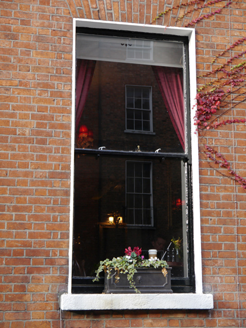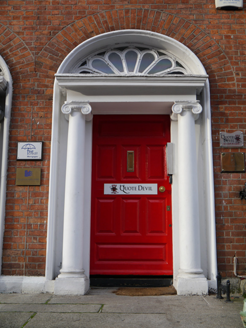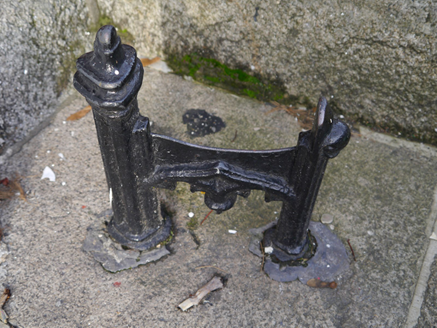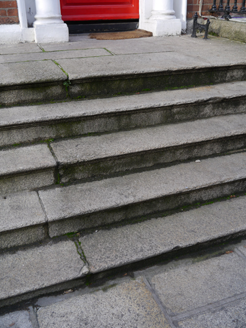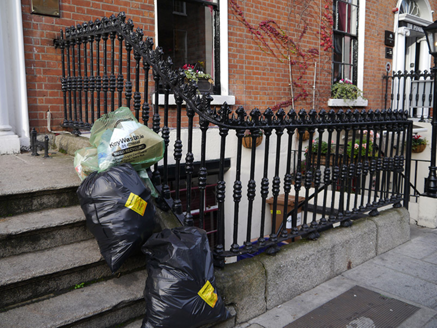Survey Data
Reg No
50930289
Rating
Regional
Categories of Special Interest
Architectural, Artistic
Original Use
House
In Use As
Office
Date
1820 - 1840
Coordinates
316322, 233009
Date Recorded
11/11/2015
Date Updated
--/--/--
Description
Terraced two-bay four-storey over basement former townhouse, built c. 1830, now in use as offices. Mansard-style roof, with rendered chimneystack to east with octagonal clay pots, concealed by parapet with moulded granite cornice. Parapet gutters. Red brick walling laid in Flemish bond over rendered walling to basement beneath painted granite stringcourse. Square-headed window openings with brick voussoirs, patent reveals, granite sills and sliding timber sash windows; one-over-one to ground and first floors with ogee horns, six-over-six to second floor with convex horns, three-over-three to third floor with convex horns and eight-over-eight to basement (with steel roller shutter). Decorative cast-iron balconettes to first and second floor openings. Elliptical-headed door opening with brick voussoirs, moulded reveals and a recessed painted surround containing a portico with frieze and moulded cornice carried on Ionic columns over plinth stops with petal fanlight and raised-and-field timber panelled door. Shared granite entrance platform with cast-iron boot scraper, approached by five bull-nosed granite steps, flanked to east by iron railings with decorative cast-iron finials and collars on granite plinth, enclosing basement area. Coal-hole cover to pavement. Street fronted on the north side of Pembroke Street Upper. Twentieth-century garages line plot to north on Stable Lane.
Appraisal
Laid out c. 1820, Pembroke Street Upper is characterised by well-proportioned late-Georgian style brick terraces which display restrained detailing and classically-styled doorcases. No. 22 forms part of a cohesive terrace comprising Nos. 20-3 (50930288-91), which is largely well-retained and is distinguished by good Ionic doorcases, petal fanlights and decorative ironwork. The terrace makes a positive contribution to the streetscape and to the wider historic Georgian core of south Dublin.
